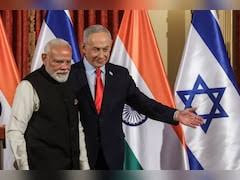Shocking WhatsApp Message Revealed: Jyoti Malhotra Pleaded With Alleged ISI Handler, “Get Me Married”

IIE DIGITAL DESK : The startling revelation that has sent shockwaves across intelligence and security circles, Jyoti Malhotra — a woman recently arrested on charges of spying for Pakistan — is reported to have sent a personal WhatsApp message to her alleged ISI handler saying, “Get me married.” The seemingly emotional appeal has added an unexpected dimension to the ongoing investigation, raising questions about manipulation, psychological vulnerability, and deeper espionage tactics used by foreign agencies.
Jyoti Malhotra was arrested earlier this month by central intelligence agencies after a detailed surveillance operation allegedly revealed her consistent online communication with members of Pakistan’s Inter-Services Intelligence (ISI). Authorities claim she was sharing sensitive information related to Indian military installations and troop movements. Her arrest has drawn widespread attention, not only because of the nature of the charges but also due to her background as a civilian with no formal military ties — suggesting a growing threat of non-traditional espionage in the digital age.
What has shocked investigators even more is the nature of her messages, now part of the official charge sheet. One of the messages she reportedly sent via WhatsApp to an individual identified as her ISI handler included a personal plea: “Mujhe shaadi kara do,” or “Get me married.” Officials believe the message reflects the emotional manipulation that may have been used to trap and recruit her, potentially exploiting her personal vulnerabilities and loneliness.
Sources within the intelligence community suggest that Malhotra may have been subjected to what is known in espionage circles as a "honey trap," where foreign agents develop romantic or emotional ties to individuals in order to extract confidential information. According to the investigation, Malhotra was in regular touch with multiple Pakistani numbers, using WhatsApp, Telegram, and other encrypted platforms to communicate.
The alleged handler, posing as a friend or lover, reportedly promised marriage and a stable life, coaxing Malhotra into providing photographs of military areas and other logistical data. While it remains unclear how much actionable intelligence she shared, investigators believe the volume of communication over months could indicate a deeper involvement than initially assumed.
Interrogation reports also reveal that Malhotra confessed to having fallen in love with the person on the other end, whom she believed to be a Pakistani army officer. In a bizarre twist, she even made repeated requests to meet in Dubai or Nepal — both often-used neutral meeting points in international espionage operations.
The investigating agencies are now trying to verify whether Malhotra acted out of affection, coercion, or monetary gain. So far, there is no evidence of financial transactions, but officials have not ruled out the possibility of non-monetary incentives being used to lure her in.
The case has sparked a wider debate about cyber security, national security awareness among civilians, and the emotional vulnerabilities that foreign agents can exploit. The Ministry of Home Affairs is reportedly planning to issue fresh advisories about the risks of online relationships with unknown persons, especially those claiming to be from defense backgrounds or foreign services.
Meanwhile, Malhotra remains in judicial custody. Her legal team has declined to comment in detail, citing the sensitivity of the case, but sources say they are likely to argue that she was emotionally manipulated and not fully aware of the consequences of her actions.
As the investigation unfolds, the “Get me married” message has become a chilling symbol of how emotional entanglements can be weaponized in the world of modern-day espionage — a reminder that the battlefield is no longer just physical but deeply psychological and digital.
You might also like!



























